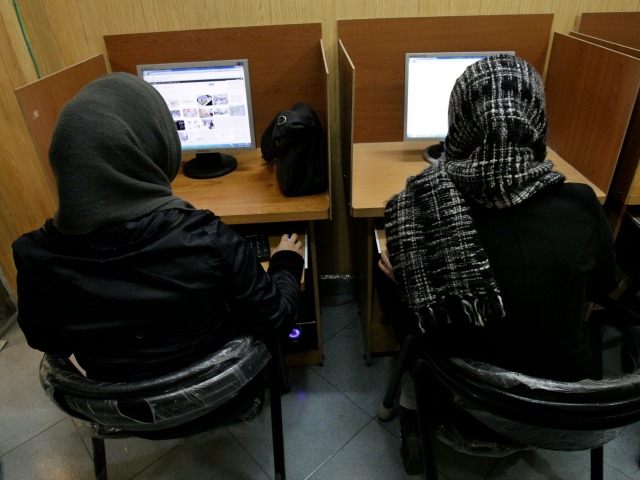There’s a new social network on the block for Muslims who want to use the web and isolate themselves from western values. Muslimface, which models itself after Facebook and Twitter, aims to cocoon its users from “blasphemous” content.
According to Forbes, which chose to run its story under the headline “Against Islamophobia And Trump-Style Prejudices, Social Networks For Muslims Are On The Rise,” the social network offers “prayer times, job postings, a tool to locate the nearest mosque,” and a “find your spouse” feature.
But it’s not just about what’s allowed on the platform. Speaking to Forbes, Muslimface’s CEO and co-founder also highlighted what was banned on the platform:
Right now on other social media, Muslims never know when they will be exposed to harmful content like extremism, sexually explicit images, blasphemy, anti-Muslim stereotypes, alcohol-related content and much more.
In other words, Muslimface is a “safe space” where users are protected from the “blasphemies” of the outside world. It’s not entirely unlike the safe spaces demanded by left-wing activists on campus and the web’s social justice warriors. They too want to avoid any encounter with people or content that challenges their beliefs or values.
According to Forbes, the new social network was designed to be “Sharia-compliant.”
But the founder believes that Muslimface, unlike most of its competitors, has all it takes in order to be able to present itself as a ‘Sharia-complaint website’, having received advice and approval from high profile scholars before launch, and having designed aprivacy pattern known as Mahram, meant, among other things, to make sure that religious precepts about male and female interaction are respected.
There’s also an option for gender segregation:
On the platform is possible, for instance, to add as ‘friends’ only people from the same gender (except for close blood relatives).
Despite this, the platform has been condemned by a former government official in Egypt, Mahmoud Ashour, who said the platform’s matchmaking feature was not in line with Islamic values.
“If a man wants to know a girl or propose to her, he should go directly to her home instead chatting online,” said Ashour.
“According to Islamic Sharia, with regards to introductory marriage protocol, the couples cannot sit together without a mahram who safeguards the girl’s dignity and value. I don’t believe these things can be fully guaranteed online,” Ashour added.
Looks like the new social network isn’t “Sharia-compliant” enough for everyone.
You can follow Allum Bokhari on Twitter, add him on Facebook, and download Milo Alert! for Android to be kept up to date on his latest articles.
